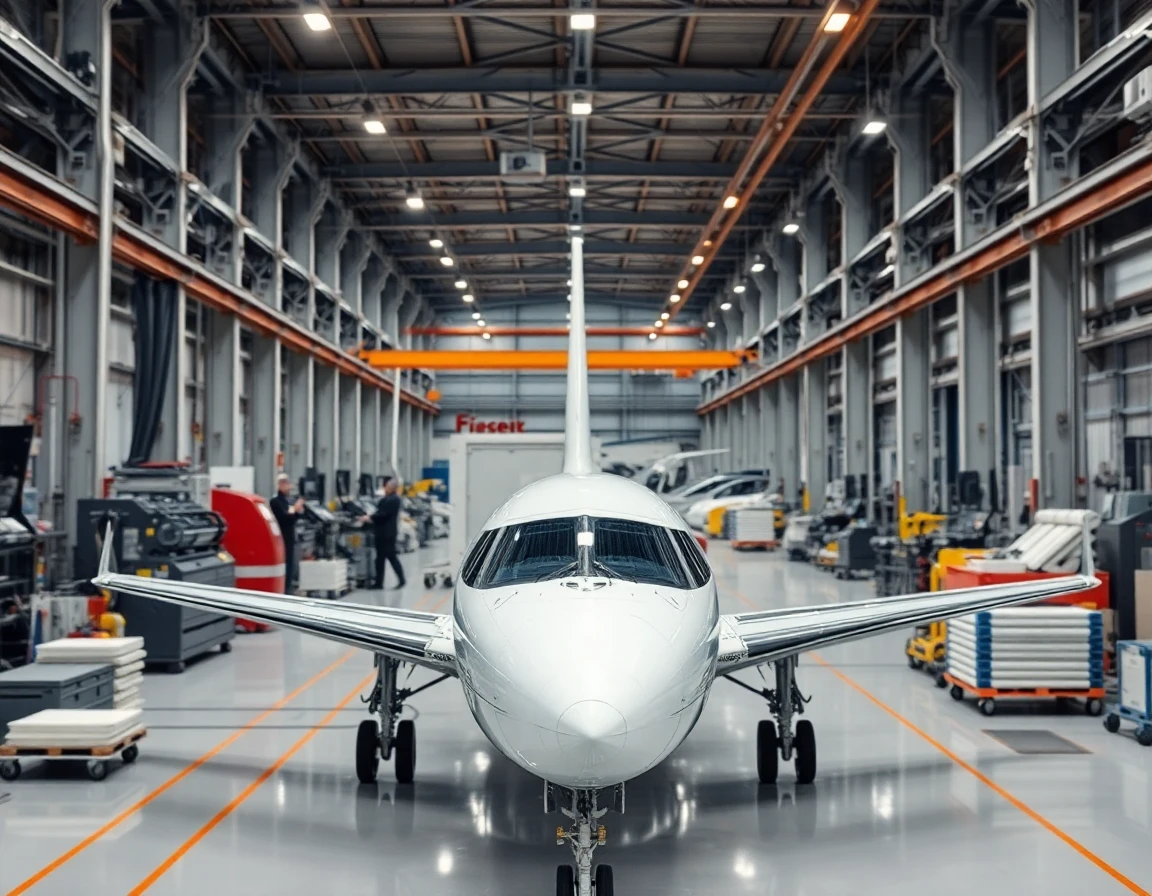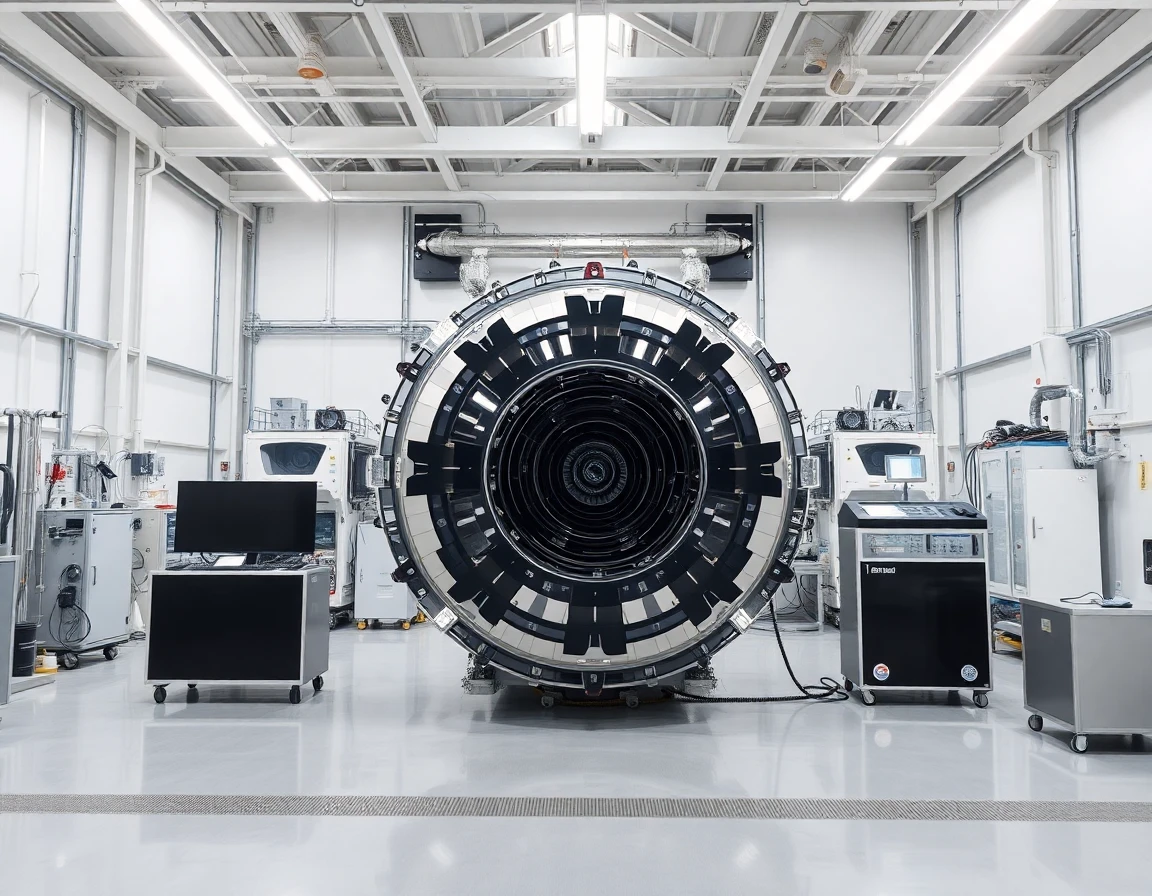Enhancing Aerospace Supply Chain Resilience Through Digital Transformation and AI
The aerospace industry has faced unprecedented challenges in recent years, particularly due to the COVID-19 pandemic which disrupted global supply chains. As the sector emerges from this crisis, manufacturers are prioritizing aerospace supply chain resilience to ensure future stability and efficiency. This article explores how digital transformation and artificial intelligence (AI) are pivotal in this endeavor.
The Impact of the Pandemic on Aerospace Supply Chains
The pandemic exposed vulnerabilities in the aerospace supply chain, highlighting the need for greater agility and resilience. With restrictions on movement, reduced workforce availability, and a sharp decline in air travel, many manufacturers found themselves grappling with delays and shortages. According to a recent report by the Aerospace Industries Association, nearly 70% of companies indicated that supply chain disruptions significantly impacted their operations during the pandemic.
Embracing Digital Transformation
To mitigate these challenges, aerospace manufacturers are increasingly turning to digital technologies. Digital transformation encompasses a range of strategies, including automation, data analytics, and the Internet of Things (IoT). By integrating these technologies, companies can gain real-time visibility into their supply chains, enabling them to respond more swiftly to disruptions.
For instance, predictive analytics powered by AI can forecast potential supply chain disruptions, allowing manufacturers to adjust their procurement strategies proactively. As John Smith, a supply chain expert at AeroTech Solutions, explains, “The ability to anticipate and react to supply chain issues before they escalate is crucial for maintaining operational continuity in aerospace manufacturing.”
AI Technologies in Supply Chain Management
Artificial intelligence is playing a transformative role in enhancing aerospace supply chain resilience. By automating routine tasks and analyzing vast amounts of data, AI helps manufacturers optimize inventory levels, manage supplier relationships, and improve demand forecasting.
For example, machine learning algorithms can analyze historical data to predict which components are likely to face shortages based on current trends. This allows manufacturers to adjust their orders accordingly, reducing lead times and ensuring a steady supply of critical materials.
Moreover, AI-driven systems can enhance communication between suppliers and manufacturers, facilitating better collaboration and transparency throughout the supply chain. As Sarah Johnson, an industry analyst, notes, “AI technologies are not just about efficiency; they are about creating a more resilient ecosystem that can withstand future shocks.”
The Role of Satellite Communication in Supply Chain Resilience
In addition to AI, satellite communication technologies are becoming integral to enhancing supply chain resilience in the aerospace sector. With the ability to provide real-time data transmission from remote locations, satellite systems enable manufacturers to monitor the status of their supply chains from anywhere in the world.
This capability is particularly beneficial for aerospace operations that require constant communication with suppliers and logistics partners. For instance, high-precision navigation systems can track shipments and ensure that components arrive on time, thereby minimizing production delays.
Future Developments and Potential Impacts
As the aerospace industry continues to innovate, the focus on aerospace supply chain resilience will likely lead to the adoption of more advanced technologies. The integration of blockchain technology, for example, could provide an immutable record of transactions within the supply chain, further enhancing transparency and trust among stakeholders.
Furthermore, the shift towards sustainable practices will also influence supply chain strategies. With increasing pressure to reduce carbon footprints, aerospace manufacturers are exploring how they can optimize their supply chains to be more environmentally friendly. This includes sourcing materials from sustainable suppliers and implementing circular economy principles.
Conclusion
In conclusion, the journey towards enhanced aerospace supply chain resilience is being fueled by digital transformation and AI technologies. As manufacturers adapt to the lessons learned from the pandemic, the integration of these technologies will play a critical role in ensuring that supply chains are not only efficient but also robust against future disruptions. With ongoing developments in satellite communication and other innovative technologies, the aerospace sector is poised for a more resilient future.



